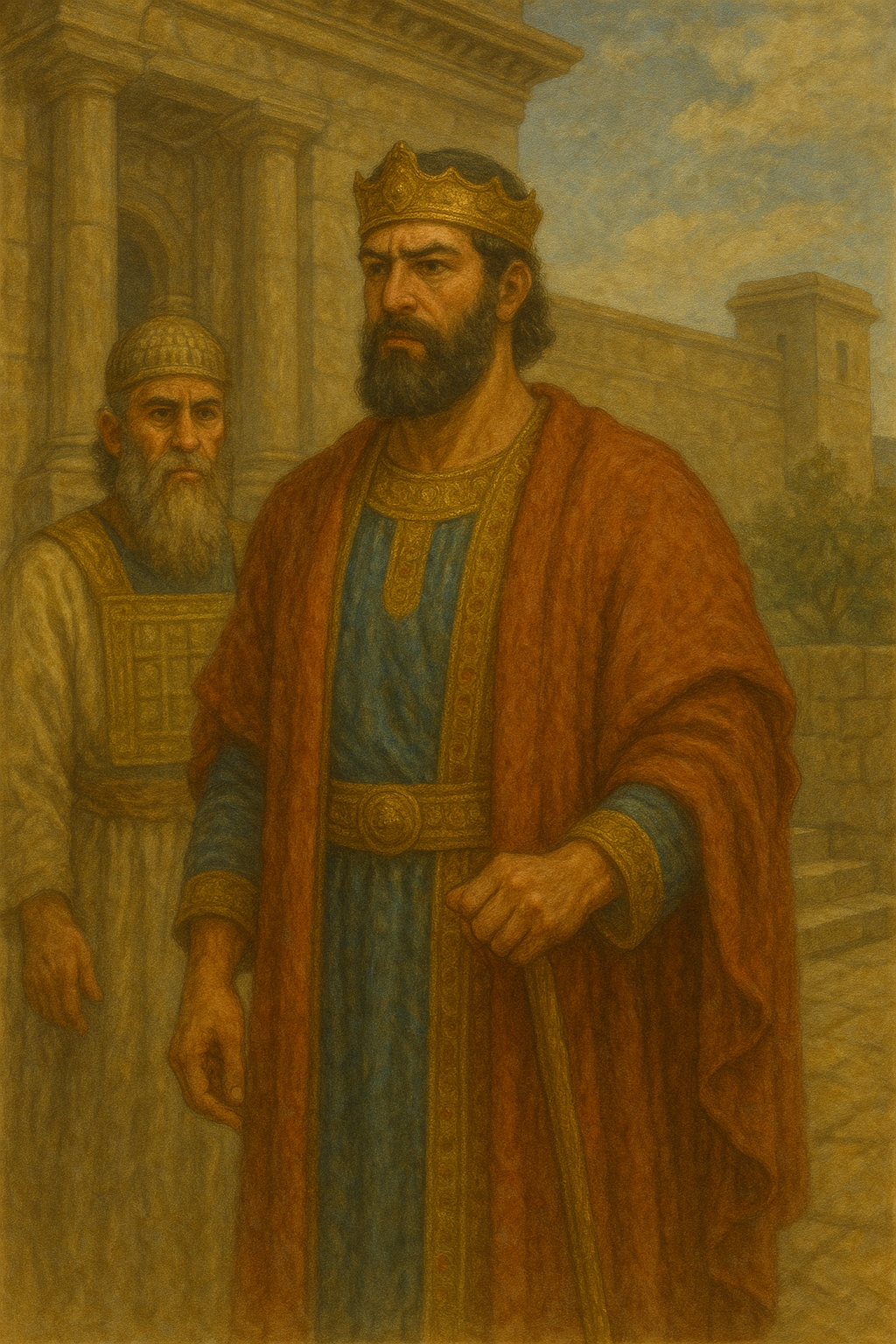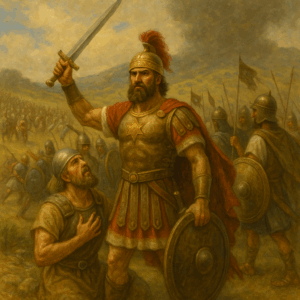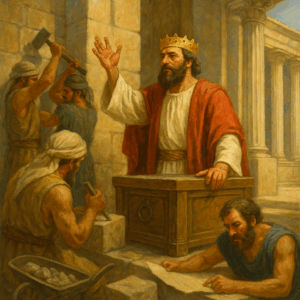How Quiet Faithfulness Built a Legacy
2 Chronicles 27 – A King Who Did Right in God’s Eyes
This often-overlooked chapter highlights one of Judah’s most underrated kings—Jotham, who:
✔ Ruled faithfully despite his father’s failure
✔ Strengthened Judah’s infrastructure
✔ Avoided the pride trap of his predecessors
✔ Left a legacy of quiet devotion
I. A Contrast to Uzziah’s Pride (v.1-2)
-
Son of Uzziah (who died a leper, 2 Chr 26:21)
-
“Did what was right”—but didn’t remove high places (v.2)
-
Learned from his father’s mistake—never entered the Temple unlawfully
💡 Key Difference: Unlike Uzziah, Jotham respected priestly boundaries.
II. Practical Leadership (v.3-6)
1. Building Projects
-
Rebuilt the Upper Gate of the Temple (v.3)
-
Fortified cities in Judah’s hills
-
Constructed towers in wilderness areas
2. Military Success
-
Defeated the Ammonites (v.5)
-
Received heavy tribute (100 talents silver + 10,000 measures of grain)
🏰 Archaeological Note: Jotham’s constructions align with findings at sites like Hazor and Megiddo.
3. The Secret to His Strength
-
“He ordered his ways before the LORD” (v.6)
-
Result: “He became mighty” (v.6)
III. A Short but Significant Reign (v.7-9)
-
Ruled 16 years (v.1, 8)
-
Died at just 41 years old (v.8)
-
Buried with honor (unlike his father)
-
Succeeded by his prideful son Ahaz (2 Chr 28:1)
4 Lessons from Jotham’s Life
1️⃣ Faithfulness > Fame – He didn’t seek glory but secured Judah’s future.
2️⃣ Infrastructure Matters – Spiritual and physical foundations reinforce each other.
3️⃣ Quiet Obedience Brings Strength – No dramatic miracles—just steady blessing.
4️⃣ One Generation’s Faithfulness Doesn’t Guarantee the Next’s – His son Ahaz abandoned God.
Historical Insights
✔ Ammonite Tribute – Confirmed by Assyrian records referencing Judah’s wealth.
✔ Temple Gate Repairs – The “Upper Gate” was critical for ceremonial processions.
✔ Early Death – Possibly due to the stress of his father’s disgrace.
Reflection Questions
-
Where is God calling you to “quiet faithfulness” over flashy success?
-
How can you build spiritual/relational “infrastructure” today?
-
Why do you think Jotham didn’t remove the high places?
-
Who models Jotham’s kind of steady devotion in your life?






